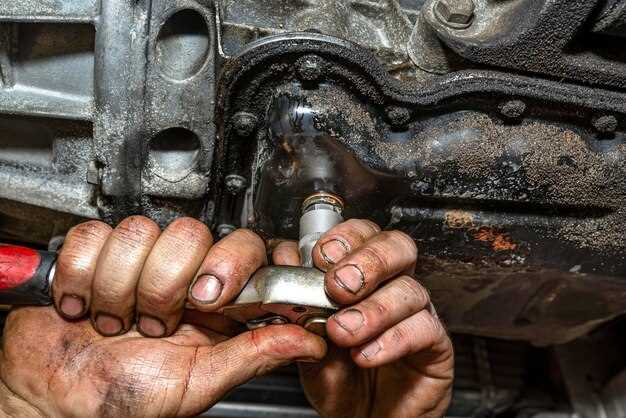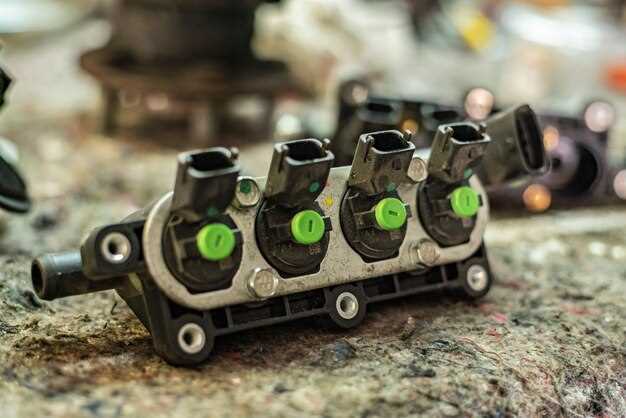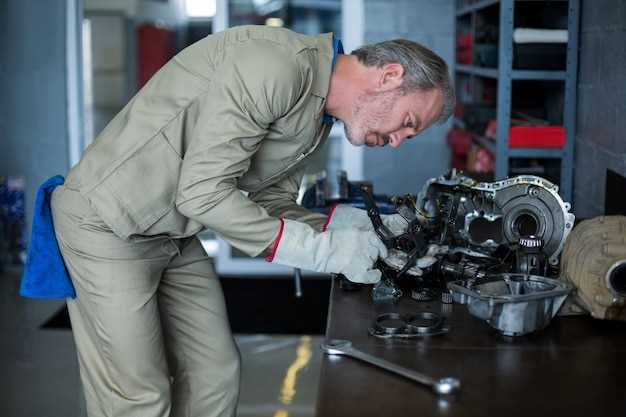

Maintaining the efficiency and longevity of a diesel injection pump is crucial for any diesel engine’s optimal performance. The injection pump is the heart of the fuel system, responsible for delivering the precise amount of fuel to the engine at the right time and pressure. Neglecting its maintenance can lead to decreased performance, increased emissions, and costly repairs.
Regular maintenance is essential for keeping the injection pump in peak condition. This includes routine inspections, proper cleaning, and timely replacements of worn components. Understanding the common failure points of diesel injection pumps can help prevent unexpected breakdowns and ensure smooth operation.
In this article, we will explore effective maintenance strategies and practical tips for caring for your diesel injection pump. From fuel quality management to monitoring system pressure, we’ll provide insights that can help extend the life of your pump and enhance the overall performance of your diesel engine.
Identifying Early Signs of Wear in Injection Pumps
Regular maintenance of diesel injection pumps is crucial for ensuring optimal performance and longevity. One of the key aspects of maintenance is the ability to identify early signs of wear. Detecting wear in its early stages can prevent costly repairs and downtime.
Here are some common indicators of wear in injection pumps:
- Decreased Performance: A noticeable drop in engine power or efficiency can be a sign of wear in the pump components.
- Unusual Noises: Knocking or rattling sounds during operation may indicate that certain parts of the pump are wearing out.
- Fuel Leakage: Signs of fuel leaking around the pump may signal deteriorating seals or gaskets, leading to potential failure.
- Increased Fuel Consumption: If the vehicle’s fuel efficiency decreases unexpectedly, this could indicate an issue with the injection pump.
- Excessive Exhaust Smoke: Black or blue smoke from the exhaust can suggest improper fuel injection due to wear in the pump.
Maintaining a close watch for these symptoms can help ensure that the diesel injection pump operates smoothly. If any of these signs are observed, it is recommended to consult a professional mechanic for a thorough inspection.
To further prevent wear, consider implementing the following practices:
- Regularly check and replace fuel filters to prevent contaminants from entering the pump.
- Ensure proper lubrication of all moving parts within the pump.
- Monitor fuel quality to avoid damage from poor-quality diesel.
- Adhere to scheduled maintenance intervals recommended by the manufacturer.
By being proactive in identifying early signs of wear, you can significantly extend the life of your diesel injection pump and maintain its efficiency.
Routine Inspection Techniques for Diesel Injection Systems

Regular inspection of diesel injection systems is crucial to ensure optimal performance and longevity of the injection pump. Effective maintenance practices help identify potential issues before they lead to significant failures.
First, visually inspect the injection pump for signs of wear, corrosion, or leakage. Look for any fuel seepage around seals and fittings, as this can indicate seal deterioration or improper connections. Ensuring that there are no leaks helps maintain consistent pressure within the system and prevents performance loss.
Next, examine the fuel lines connected to the injection pump. Check for cracks, kinks, and blockages that may affect fuel flow. Ensure that all fittings are secure and tight to prevent air from entering the system, which can lead to poor combustion.
Testing the fuel quality is another important step. Contaminated fuel can damage the injection pump and injectors, leading to inefficient engine performance. Use a fuel filter to catch any impurities and perform regular changes to maintain a clean fuel supply.
Additionally, utilize diagnostic tools to assess the performance of the injection system. Pressure gauges can help measure the fuel pressure delivered by the pump, while flow meters can evaluate the fuel quantity being injected. These measurements allow for a comprehensive assessment of pump functionality.
Finally, when inspecting the injectors, look for signs of carbon buildup or wear. Clogged injectors can significantly impact engine efficiency and performance. Cleaning or replacing injectors as needed is essential for the proper functioning of the diesel injection system.
By incorporating these routine inspection techniques into your maintenance strategy, you can enhance the reliability and efficiency of your diesel injection pump and overall engine performance.
Best Practices for Cleaning and Servicing Fuel Injectors

Maintaining fuel injectors is essential for optimal engine performance and longevity. Regular cleaning and servicing can prevent wear and ensure that the injection pump operates efficiently. Here are some best practices to follow:
1. Regular Inspection
Inspect fuel injectors regularly for signs of dirt buildup or corrosion. Look for leaks and monitor engine performance for any irregularities that may indicate injector problems.
2. Use Professional Cleaning Solutions
When cleaning injectors, opt for specialized cleaner that can dissolve deposits without damaging the components. Avoid harsh chemicals that could wear down the injector’s internal parts.
3. Follow Manufacturer Guidelines
Always adhere to the manufacturer’s specifications regarding cleaning intervals and methods. This helps in maintaining the injector’s integrity and the overall functionality of the pump.
4. Employ Ultrasonic Cleaning
An ultrasonic cleaner can effectively remove stubborn deposits from injectors by using high-frequency sound waves in a specialized cleaning solution. This method is thorough and minimizes the risk of wear.
5. Check Electrical Connections
Inspect and clean the electrical connectors attached to the fuel injectors. Corrosion or dirt in these connections can lead to misfiring or reduced fuel efficiency.
6. Test Fuel Flow and Spray Pattern
After cleaning, test the flow rate and spray pattern of each injector using a dedicated tester. Proper fuel atomization is crucial for optimal combustion and engine performance.
7. Reassemble Carefully
When reinstalling cleaned injectors, ensure that all seals and O-rings are in good condition to prevent leaks. Proper assembly minimizes wear caused by vibration or misalignment.
8. Monitor Performance Post-Service
Keep an eye on engine performance after servicing the injectors. Improvement in acceleration and fuel efficiency indicates successful cleaning and servicing.
Following these best practices will not only enhance the efficiency of fuel injectors but also extend the lifespan of the entire fuel injection system, including the pump. Regular maintenance can save you from costly repairs down the road.






